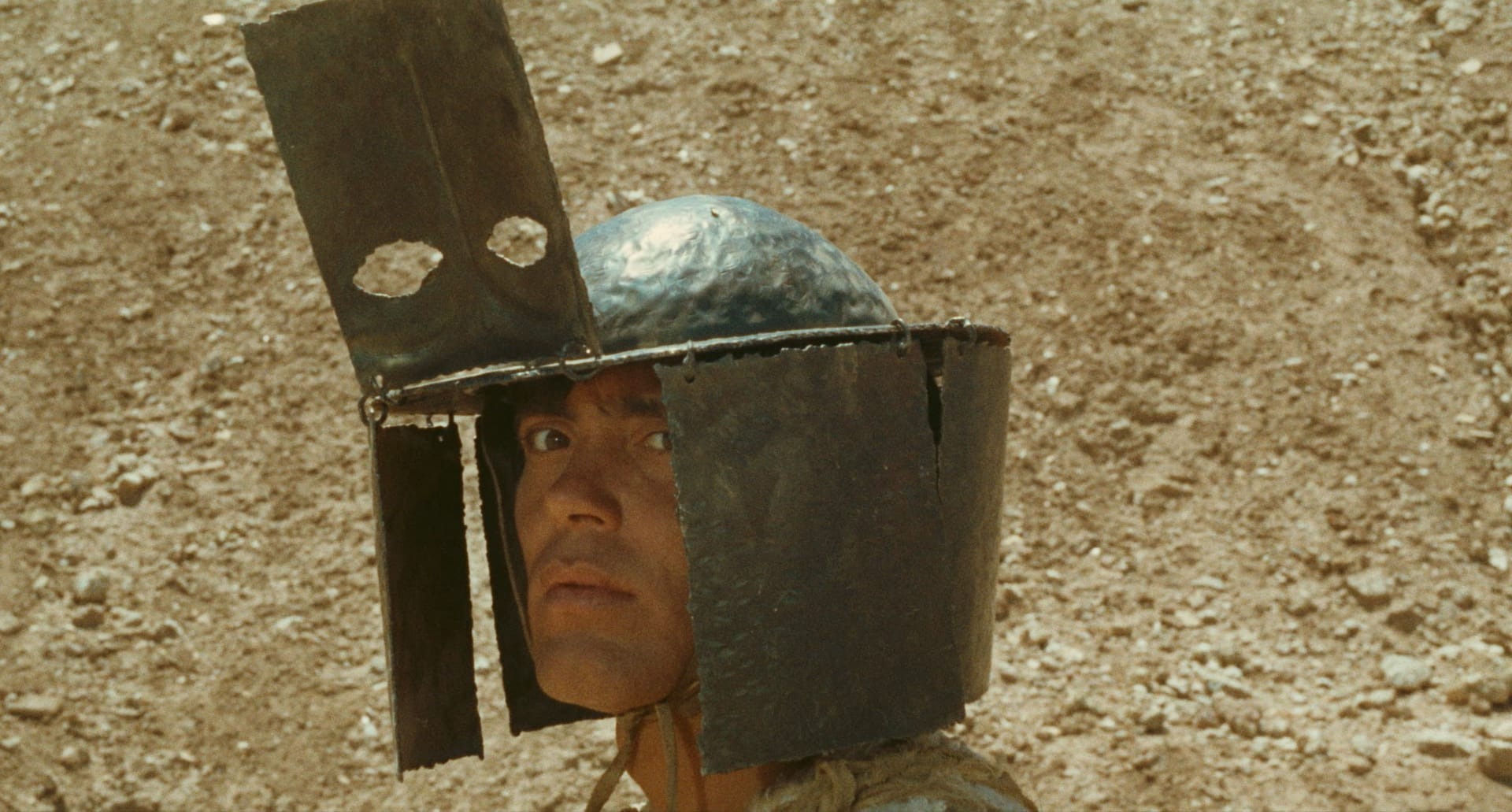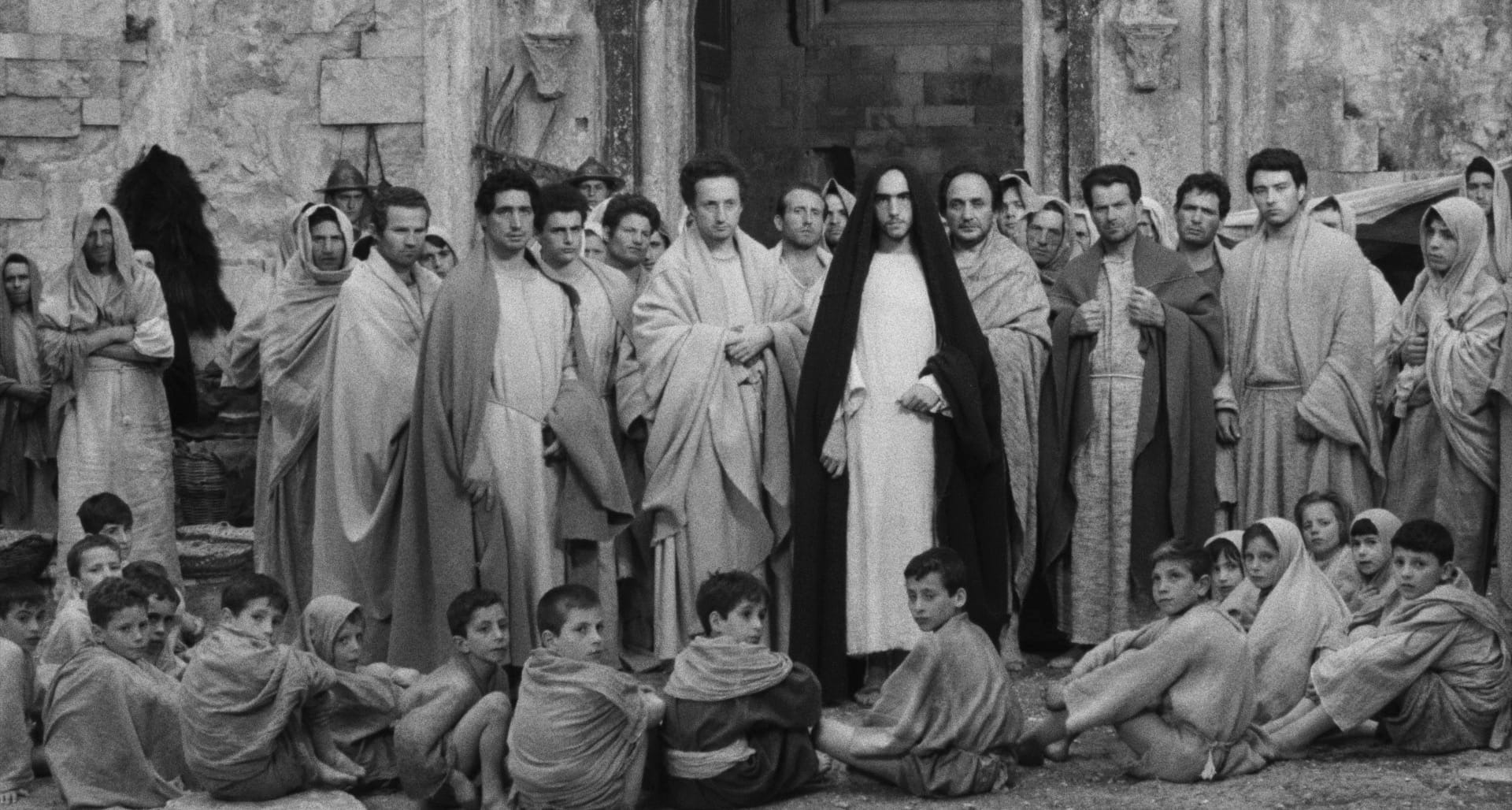RELATED ARTICLE
Teorema: Just a Boy
By James Quandt
The Criterion Collection

“I love life so fiercely, so desperately, that nothing good can come of it,” Pier Paolo Pasolini declared in 1960, just before he embarked on a career as a film director. In that characteristic union of euphoria and fatalism, one hears the contrarian voice of the most courageous and dangerous Italian artist of his generation. A heretic till the end—risking the calumny, harassment, fines, prospect of imprisonment, and death threats that afflicted his final decades, culminating in his violent demise in 1975—Pasolini stated on the last day of his life: “The saints, the hermits, the intellectuals . . . the ones that shaped history, are the people who said no. This refusal should not be small or sensible but large and total.” That final credo is amply evident in each of the features Pasolini produced over the decade of the sixties—a period of daunting and prolific accomplishment—which exalt the life he loved so fiercely by refusing, largely if not totally, the prevailing culture of postwar Italy.
Polymath proves an inadequate term to describe the prodigious Pasolini, who gained fame in Italy first as a poet, having begun writing verse as early as the age of seven, and eventually as a critic, linguist, journalist, painter, novelist, playwright, essayist, and scriptwriter, before achieving international prominence as a film director. Pasolini’s early recognition that power inheres in language, and that Indigenous and demotic speech are the truest repositories of authentic culture, motivated him to write poetry in the Friulian dialect, which he learned “as a sort of mysterious act of love,” and which allied him with his sainted mother, Susanna, a schoolteacher born in Friuli. Mother and son both grieved the death of his teenage brother, Guido, who had joined the antifascist partisans and was killed in an ambush by soldiers affiliated with the Communist Yugoslav revolutionary Josip Broz Tito. And together the two fled the tyrannical household of patriarch Carlo Alberto Pasolini, an alcoholic military officer adamantly enamored of the Fascist army, when Pasolini was in his late twenties—“like in a novel,” he would later recall. Susanna lived with her beloved son until his death.
Born in Bologna in 1922—he depicts his infancy as a maternal paradise in the rhapsodic prelude of his autobiographical Oedipus Rex (1967)—Pasolini spent much of his youth in Casarsa della Delizia, in the northern region of Friuli, whose “blue rivers and transparent millstreams” and swarms of fireflies he would memorialize in an essay just months before his death. Like Ettore in Mamma Roma (1962), who cries out on his prison deathbed that he wants only to return to the village where he grew up, Pasolini always longed for the innocence and belonging that he associated with his arcadian origins—an aching of what he called his “elegiac heart . . . My life possesses nothing else.” Pasolini’s yearning for a prelapsarian past, which would eventually lead him in his search for the unsullied to what was then known as “the Third World,” was accompanied by an increasing revulsion at the transformation of Italy during its postwar economic miracle (il boom), evident in the scalding satire of The Hawks and the Sparrows (1966) and the pessimistic coda of Oedipus Rex, intensified in the dire portraits of patriarch industrialists in Teorema (1968) and Porcile (1969)—and reaching its most extreme expression in the terminal vision of his final film, Salò, or The 120 Days of Sodom (1976).




